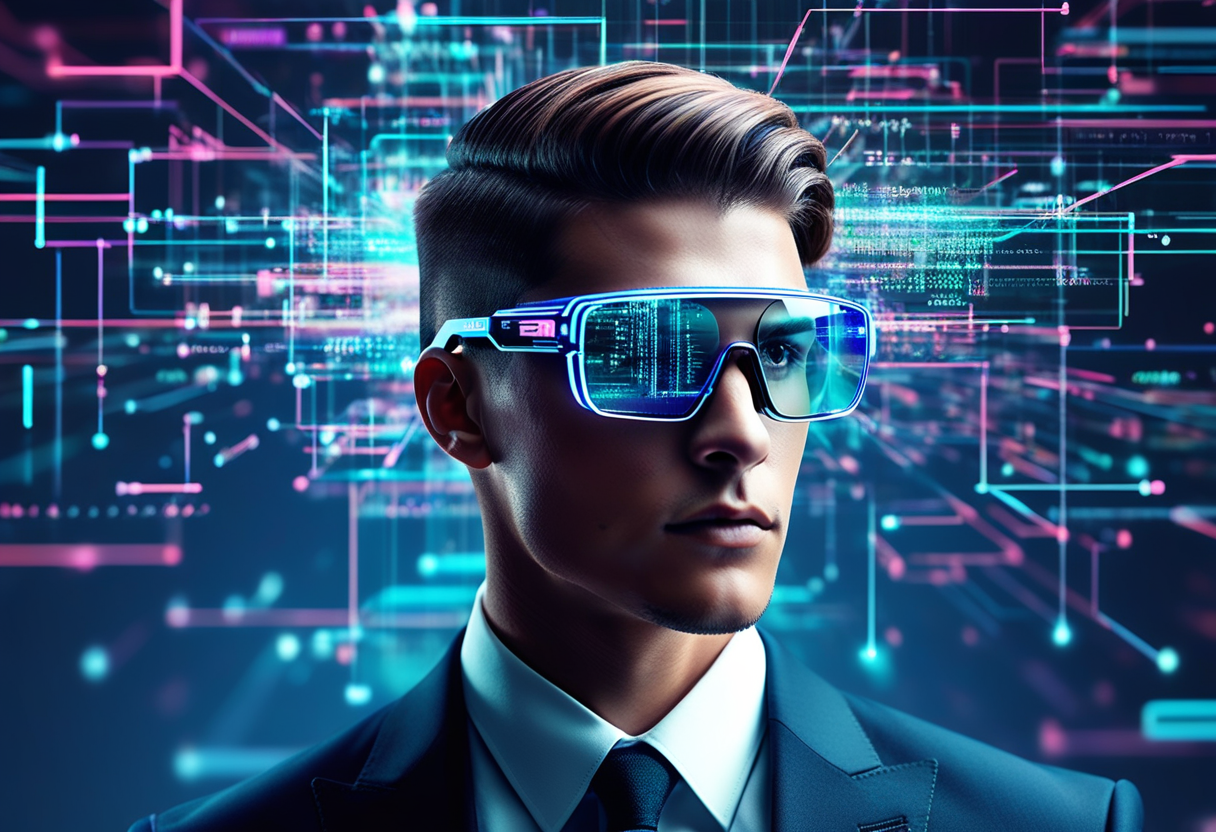Introduction
The Armenian Lawyers Association and Iravaban.net‘s innovative series “LegalTech Armenia” aims to uncover the path of convergence between law and technology. Within this series, we present how the digital revolution is reshaping the legal landscape in Armenia and worldwide. The project’s conceptual author and leader is Karen Zadoyan, President of the Armenian Lawyers Association.
In the sixth article of the innovative series, “Data Science and Law: The Future Lawyer’s Toolkit,” we will reveal how data science is revolutionizing legal research and decision-making processes.
Iravaban.net‘s journalists and experts, equipped with the latest technological tools, including advanced applications of artificial intelligence, will present analyses, exclusive interviews, and engaging stories, prepare photographs and infographics. We will uncover how data science, big data, and machine learning are transforming legal practice, the judicial system, and legislative processes.
1․ Introduction
The world of law stands on the brink of revolutionary changes. Data science and artificial intelligence (AI) are rapidly transforming legal practice, offering new tools and methods that seemed impossible just a few years ago.
According to the American Bar Association’s 2021 technology report, 35% of law firms are already using AI tools in their work. The report states: “AI is rapidly becoming an integral part of legal practice, improving
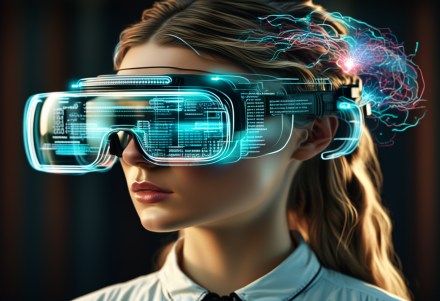
The image symbolizes the future lawyer.
efficiency and accuracy in many tasks.”
A Deloitte report predicts that by 2025, 100% of law firms will use AI-based tools in their daily operations. This trend shows that data science and AI are no longer technologies of the future, but a necessity of the present.
In this article, we will explore how data science is changing the work of lawyers, what tools make up the future lawyer’s toolkit, and how lawyers can prepare for these changes.
2․ Data Science Fundamentals for Lawyers
Data science is an interdisciplinary field that uses scientific methods, processes, algorithms, and systems to extract knowledge and insights from data. In the context of law, it can be used for legal document analysis, predicting court decisions, and assessing legal risks.
Key concepts include:
- Big Data: Enormous volumes of data that require special processing methods.
- Machine Learning: A branch of AI that allows systems to learn from experience without explicit programming.
- Predictive Analytics: The use of statistical methods and machine learning to predict future outcomes.
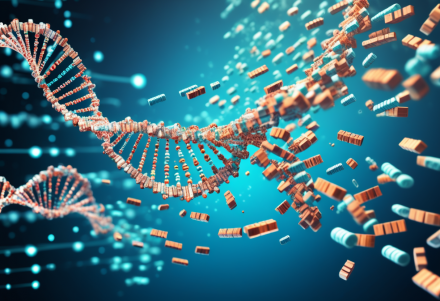
The image symbolizes legal DNA.
Conclusions:
- Data science uses scientific methods for legal analysis,
- The main concepts are big data, machine learning, predictive analytics,
- The majority of lawyers recognize the importance of data science.
3․ The Future Lawyer’s Toolkit
The future lawyer’s toolkit includes a range of advanced technologies that significantly improve work efficiency and accuracy. These tools are revolutionizing legal practice by introducing new approaches and methods.
- Big Data Analysis: This technology allows processing and analyzing vast amounts of legal information, revealing trends and patterns that can be used for strategic decision-making.
- Machine Learning Algorithms: These tools can automate complex legal research, significantly speeding up the process and increasing the accuracy of results.
- Data Visualization: This technology helps to visually represent complex legal relationships and data, facilitating their perception and analysis.
- Predictive Analytics: These AI-based tools can predict the likely outcomes of court cases based on previous decisions and legal precedents.
- Automated Document Processing: This technology allows for quick and accurate analysis of large volumes of legal documents, extracting important information and reducing the likelihood of human
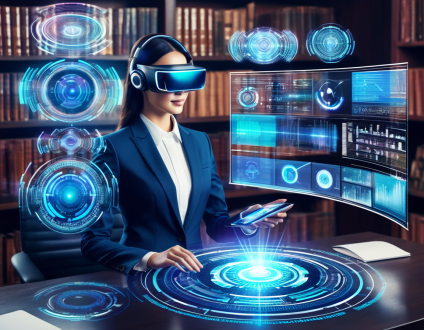
The image symbolizes quantum law.
error.
Conclusions:
- The future lawyer’s toolkit includes technologies based on big data, machine learning, and artificial intelligence,
- These tools significantly increase the efficiency and accuracy of legal work,
- The legal technology market is rapidly developing, offering innovative solutions for various areas of legal practice.
4․ Real-world Examples of Data Science Application
Data science is already widely applied in various areas of law.
- Rapid Precedent Analysis: Casetext’s CARA AI system can analyze thousands of precedents in seconds and suggest the most relevant sources. According to the company, their technology is 23% more effective than traditional legal research methods.
- Automated Contract Analysis: LawGeex’s AI system can check and validate contracts with 94% accuracy compared to 85% for human lawyers. The company states that their system can analyze contracts 26 times faster than experienced lawyers.
- Predicting Court Decisions: A study conducted by University College London, Sheffield University, and the University of Pennsylvania has shown that AI can predict European Court of Human Rights
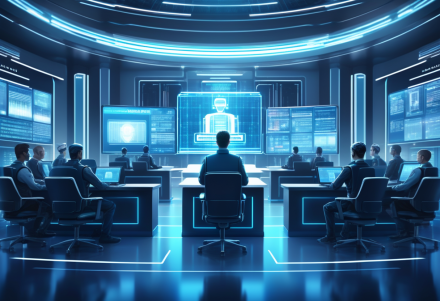
The image symbolizes the AI judge.
decisions with 79% accuracy.
5․ Education of Future Lawyers
The growing role of data science and AI in law requires changes in legal education.
- Integration of Data Science into Legal Education: Leading law schools have begun to include data science and AI courses in their curricula. For example, Harvard Law School offers the course “Artificial Intelligence and Law.” According to a National Jurist study, 67% of leading U.S. law schools already offer at least one course dedicated to legal technologies.
- Continuing Education: Many bar associations offer continuing education courses on data science and AI. The American Bar Association reports that in 2021, 45% of their members participated in at least one webinar or course dedicated to legal technologies.
- International Experience Study: Bucerius Law School in Germany offers a “Legal Technology and Operations” master’s program. According to the school’s data, 85% of graduates from this program find work in the legal technology sector within the first 6 months.

The image symbolizes virtual legal education.
6 Challenges and Ethical Considerations
Despite the many advantages of data science and AI, their application in law also raises a number of challenges and ethical issues.
- Data Security and Privacy: Law firms work with sensitive data, and protecting it is of paramount importance. The European Union’s General Data Protection Regulation (GDPR) sets strict requirements for personal data processing.
- Algorithmic Bias: AI systems can inherit and reproduce human biases. A ProPublica investigation revealed that the COMPAS system used in the U.S. to assess the risk of recidivism shows racial bias. The study showed that black defendants were 77% more likely to be classified as “high risk” than white defendants.
- Preserving the Human Role: It is important to maintain the human role in the legal decision-making process. The European Parliament adopted a resolution in 2020 calling for the creation of a legal framework for regulating AI liability issues. The resolution states that “the final decision must always be made by a human.”
7․ Armenia’s Prospects
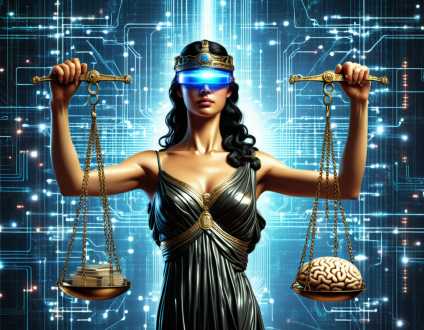
The image symbolizes digital Themis.
Armenia, as a developing IT center, has great potential to offer innovative solutions at the intersection of data science and law. The Armenian Lawyers Association (ALA) plays an important role in this field.
Armenia’s Potential
- Digitization of the Legal System: Armenia’s e-government system (e-gov.am) has already begun to implement AI elements in the processing and searching of legal documents. This experience can be used for broader application of data science methods in the legal field.
- Potential of Local Startups: Armenia’s IT sector has great potential for developing legal technologies. Although there are no specific examples of startups specializing in the legal field, the existing experience in data science and AI can serve as a foundation for such initiatives.
- International Cooperation: Armenia can collaborate with international organizations to apply data science methods in the legal field. This may include joint research programs, experience exchange, and technology transfer.
The Role of the Armenian Lawyers Association
ALA plays an active role in the development of legal technologies in Armenia. ALA‘s activities include:
- “LegalTech Armenia” Initiative: ALA implements this innovative series through Iravaban.net, which covers developments in legal technologies, including the application of data science in law.
- Educational Programs: The Association plans to launch a pilot educational project at one of Armenia’s leading universities, introducing a curriculum on legal technologies.
- Legal Regulations: ALA works on legal regulation of data science and AI, which is important for the ethical and effective application of these technologies.

The image symbolizes smart Yerevan.
ALA President Karen Zadoyan‘s Commentary
In an interview with Iravaban.net, Karen Zadoyan said: “Data science offers powerful tools to increase the efficiency of legal work. We see great potential in this field for Armenia. ALA is working to create an environment where lawyers can benefit from data science while maintaining ethical standards and personal data privacy. We believe that Armenia can become a regional leader in legal technologies.”
Conclusions:
- Armenia has the potential to become a center for innovative solutions at the intersection of data science and law,
- ALA actively contributes to the development of legal technologies in Armenia, including in the field of data science,
- Education and awareness-raising are key to the development of this field,
- Special attention needs to be paid to ethical and legal challenges arising from the application of data science in law.
8․ Conclusion

The image symbolizes the global legal network.
Data science and artificial intelligence (AI) are radically transforming the legal field. The future lawyer’s toolkit includes big data analysis, machine learning, data visualization, and other advanced technologies.
- Increasing Work Efficiency: Research shows that AI and automation can significantly increase the efficiency of legal services in the coming decade.
- Demand for New Skills: International experts predict that in the near future, a significant portion of workers, including lawyers, will need retraining to adapt to new technologies.
- Overcoming Ethical Challenges: International organizations are developing guidelines for the ethical design and application of AI systems. These principles are also important for the application of AI in the legal field.
Armenian lawyers need to be prepared for these changes by developing their technological skills and integrating new tools into their work. At the same time, it is important to consider ethical considerations and maintain the important role of humans in the legal decision-making process.
Armenia, with its developing IT sector, has a great opportunity to become a leader in the development of legal technologies. This requires coordinated efforts in education, research, and innovation.
 Conclusions:
Conclusions:
- Data science and AI have become a necessity in modern legal practice,
- Armenian lawyers need to develop their technological skills,
- Armenia has the potential to become a center for the development of legal technologies,
- The Armenian Lawyers Association has the vision and potential to guide and lead the development of legal technologies in Armenia.
Final Part
Don’t miss the seventh article in the innovative series “LegalTech Armenia” by the Armenian Lawyers Association and Iravaban.net: “The Big Data Revolution in Law: The Future is Already Here.” How are big data transforming law on a global scale?

